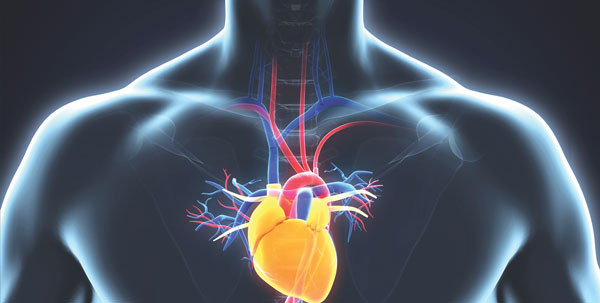
What are somatic workouts?

How to curb your stress eating

How to spot Parkinson’s disease symptoms

8 simple ways to reduce ultra-processed foods in your diet

Heart failure symptoms in women: How they’re different

GERD diet: Foods to avoid to reduce acid reflux

Strong is the new skinny

Everyday habits that sneakily weaken your bones

Don’t wait to get help for back pain

Correcting how you walk may ease osteoarthritis knee pain
Staying Healthy Archive
Articles
Should I restrict calories for longevity?
Some potential medicines appear capable, in animals, of producing the same changes in body chemistry that calorie restriction does.
Where the worst type of fat is hiding in supermarket foods
Trans fats are undeniably bad for health, and they're still in many foods.
Image: GPointsStudio/Thinkstock
Lurking on supermarket shelves, within colorful, seemingly harmless packages, is something that can cause serious harm to your health: trans fat. "No amount of trans fat is acceptable, from a health standpoint," says registered dietitian Kathy McManus, director of the Department of Nutrition at Harvard-affiliated Brigham and Women's Hospital.
About trans fat
Still a danger
Meanwhile, food manufacturers are allowed to use partially hydrogenated oils in their products, and so are restaurants. And if you're not savvy about reading Nutrition Facts labels, you may not detect the trans fat in your food. "The FDA doesn't require trans fat to be listed until there's a half gram or more per serving," explains McManus, "so the label may show zero grams of trans fat, even if a serving contains almost half a gram."
Are small amounts of trans fat dangerous? "It adds up, especially if you eat several foods with trans fat each day," says McManus. Based on FDA estimates, researchers at the CDC report it is possible that eliminating trans fats in the diet may prevent as many as 10,000 to 20,000 heart attacks and 3,000 to 7,000 deaths from heart disease each year.
Become a detective
What about other fats?
All fat is high in calories (nine calories per gram of fat, versus four calories per gram of carbohydrate, for example). A high-calorie diet can lead to weight gain, which can lead to chronic health problems.
An excess of saturated fats (such as those found in whole milk, butter, and red meat) can increase "bad" LDL cholesterol and lead to heart disease. Limit saturated fats to less than 7% of your total daily calories or less than 12 grams in a 1,500-calorie diet.
Some fats, within calorie limits, are good for you. Such "good" fats include monounsaturated fat (such as those in olive and canola oils, most nuts, peanut butter, and avocados) and polyunsaturated fat (for instance, in salmon, mackerel, walnuts, and safflower oil). Both are associated with lower LDL cholesterol and total cholesterol when substituted for saturated fats.
Surprising sources of trans fat that list 0 grams on the Nutrition Facts label | ||
Product type | Brand | Identifying ingredient |
Frozen fish fillets | Sea Cuisine Potato-Crusted Cod | Partially hydrogenated soybean oil |
Coffee drink mix | Hills Bros. Double Mocha Cappuccino | Partially hydrogenated coconut oil |
Breakfast cereal | Kellogg's Apple Jacks | Partially hydrogenated soy-bean and/or cottonseed oil |
Seasoned bread crumbs | Vigo | One or more partially hydrogenated oils (soybean, cottonseed, corn, canola) |
Indoor cycling for older adults
Today's high-tech stationary bikes are ridden at top speed, with instructors telling cyclists when to coast, sprint, and climb.
Image: JackF/Thinkstock
One of the hottest trends among the workout set springs from your old stationary bicycle. The new use for old wheels is a supercharged cardio workout called indoor cycling or Spinning (its trademarked name). First popular in the 1990s, the activity is still going strong and is now popular among older adults. "Many classes are specifically for seniors, with instructors who are familiar with modifications for your age group," says Jacob Girlinghouse, a physical therapist with Harvard-affiliated Brigham and Women's Hospital.
The workout and benefits
Is it right for you?
While indoor cycling classes are safe for most people, get your doctor's okay first, especially if you have a heart problem. If you have an injury, pain in your neck or back, or any serious medical conditions, it may be a good idea to ride a regular stationary bicycle at your own pace until your pain subsides. If you are unsure, ask your physician or your physical therapist.
If you have balance problems, a Spinning class can be a safe alternative to other forms of cardiovascular exercise because you exercise while seated. "If your balance is good enough to get on and off the bike safely, then you should be good to go. However, if you feel unsteady when mounting or dismounting, a stationary recumbent bike might be a better option for you," says Girlinghouse.
Making it work
Walking program linked to reduced disability
It appears that adopting a regular routine of moderate physical activity, such as walking, helps older adults remain mobile longer and may also help them to recover faster from physical disabilities.
Say cheese?
Dairy products don't seem to harm the heart. But plant-based fats are probably a better choice than cheese.
Image: AlexPro9500/Thinkstock
Health-conscious consumers know to steer clear of diets that include lots of meat—especially fatty, salty processed meat. But what's the deal with dairy? Nutrition experts have long recommended low-fat milk and yogurt as good choices for getting the two to three daily servings of dairy recommended by federal dietary guidelines.
Over the past few decades, Americans have been spooning up more yogurt and drinking much less milk. But the biggest change by far has been in our cheese consumption, which has skyrocketed since the 1970s (see "Trends in dairy intake: Less milk, more cheese and yogurt").
How winter’s chill can challenge your heart
A few simple precautions can minimize your risk.
Image: robertiez/Thinkstock
Every time you venture out into the bone-shivering, teeth-chattering cold of a Northern winter, your heart and blood vessels kick into overdrive to keep your internal organs cozy. To accomplish this feat, the tiny blood vessels in outlying areas such as the fingers and toes constrict to stem the loss of body heat into the environment. The flip side of this protective maneuver is that the heart must beat against extra force to overcome the resistance it meets in the narrowed vessels.
Supply and demand mismatch
Smart precautions
You can minimize the impact of cold weather on your heart by taking steps to avoid situations that are likely to put you at risk.
Don't overexert. Remember that your heart is already working overtime to compensate for the cold temperatures. Therefore, don't push yourself with strenuous activities such as shoveling heavy snow or partaking in vigorous outdoor exercise unless you are in good physical shape.
Keep your body temperature steady. Put on warm outerwear including coat, gloves, and hat before facing the elements. This will guard against hypothermia, in which the body's internal temperature falls too low. Likewise, dress in layers that you can peel off if you get too warm. Overheating can lead to an abrupt and potentially dangerous drop in blood pressure.
Get a flu shot. A bout of seasonal flu can trigger a heart attack in people already at risk for heart disease. The flu causes a fever, which can make your heart beat faster. It can also cause dehydration, which can have a similar effect as the heart beats faster to maintain your blood pressure.
Keep your prescriptions filled. Icy conditions can make it difficult to get to the pharmacy to pick up a prescription, so make sure not to let your supply of heart medicines run low.
Heed the warning signs
Your New Year’s resolution: A gym membership?
What to consider when choosing a workout venue.
Image: vencavolrab/Thinkstock
If getting in shape tops your list of New Year's resolutions, you're in good company. During the first few months of the year, sign-ups at fitness centers and health clubs tend to trend upward. While these memberships can be costly, you may be able to find more affordable options or take advantage of discounts. But no matter what you pay, shelling out a monthly fee may encourage you to use the gym regularly to get your money's worth. If you do, your heart will likely reap the rewards: regular exercise is one of the best ways to boost cardiovascular health.
"The main advantage to joining a gym is to have access to a wide variety of exercise equipment," says Alex Petruska, a senior physical therapist at the Sports Medicine Center of Harvard-affiliated Massachusetts General Hospital. That includes machines for a cardiovascular workout, such as treadmills, elliptical trainers, stationary bikes, and stair steppers, as well as a variety of weight machines.
Online hospital ratings: Are they helpful?
A better understanding of these rating systems can help you know how and when to use them.
Image: NiroDesign /Thinkstock
Many people make it a habit to check online reviews before purchasing products and services. But not everyone realizes that you can also find online ratings of many hospitals throughout the United States.
Granted, choosing your hospital isn't always an option (in the event of a heart attack, for example). Location and insurance issues may also come into play. But if heart disease is a concern, do you know how your local hospital's cardiac care stacks up? What if you need a non-emergency procedure? Where's the best place to go?
Bringing awareness to aneurysms in the chest
Most often, bulges in the aorta near the heart are found by accident. Should you be screened for this rare yet dangerous condition?
Image: Nerthuz /Thinkstock
The aorta, the body's largest blood vessel, arises from the heart's left pumping chamber, then curves up and over the heart in a gentle arc. In some people, a weak spot in the aorta's wall causes the vessel to bulge outward like a worn-out bicycle tire. Called a thoracic aneurysm, this stealthy condition develops slowly and silently, rarely causing symptoms. And while some thoracic aneurysms are relatively harmless, others cause catastrophic problems. An estimated one in 10,000 people has a thoracic aneurysm, although the exact prevalence is unknown.
"Most thoracic aneurysms are discovered on an imaging test done for some other reason," explains Dr. Eric Isselbacher, associate professor of medicine at Harvard Medical School and co-director of the Thoracic Aortic Center at Massachusetts General Hospital. For example, an aneurysm might be visible on an echocardiogram (heart ultrasound) done during testing for an irregular heartbeat. Because the condition is so uncommon, testing everyone for a thoracic aneurysm doesn't make sense. But certain people face a higher risk than others (see "Who needs to be checked?").

What are somatic workouts?

How to curb your stress eating

How to spot Parkinson’s disease symptoms

8 simple ways to reduce ultra-processed foods in your diet

Heart failure symptoms in women: How they’re different

GERD diet: Foods to avoid to reduce acid reflux

Strong is the new skinny

Everyday habits that sneakily weaken your bones

Don’t wait to get help for back pain

Correcting how you walk may ease osteoarthritis knee pain
Free Healthbeat Signup
Get the latest in health news delivered to your inbox!
Sign Up











